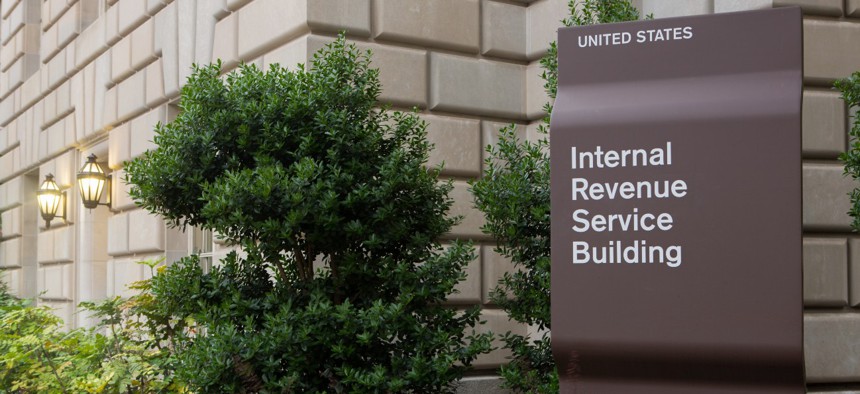
Skyhobo / iStock.com
Bipartisan Group of Lawmakers Seeks Assurances IRS Will Keep Phone Lines Open
Report had said a temporary help line shutdown was one option under consideration to free resources to address a backlog of unprocessed and amended tax returns.
A bipartisan group of senators is seeking more assurances that the Internal Revenue Service will keep phone lines open while it resolves its vast backlog of cases.
Sens. Robert Menendez, D-N.J.; Bill Cassidy, R-La.; Benjamin Cardin, D-M.D.; and Ron Wyden, D-Ore., wrote to IRS Commissioner Chuck Rettig on Thursday with concerns that the IRS phone lines would be shut down in order to clear the backlog of 5.9 million unprocessed individual tax returns and 2.7 million amended tax returns. The concerns were prompted by a Bloomberg Tax report on November 22 that the reporter deemed a “rollercoaster” of a story. “IRS denies it's considering temporarily shutting down its phone lines to divert resources to its tax return backlog, hours after [National Taxpayer Advocate] Erin Collins said the idea was one of several ‘drastic measures’ on the table,” the Bloomberg reporter said in a tweet. The Taxpayer Advocate Service is an independent organization within the IRS, led by the National Taxpayer Advocate, that helps individual and business taxpayers resolve filing problems.
“We write to you today to urge that the Internal Revenue Service keep its telephone lines open while clearing the unprecedented backlog of unprocessed returns,” wrote the senators in the letter shared with Government Executive before becoming public.
The IRS received “more telephone calls this filing season than in any previous filing season,” said a report from the Taxpayer Advocate Service in June, on the 2021 filing season. However, the “customer service representative level of service” dropped from 73% in 2018 to 19% in 2021. That is a performance metric used by the IRS to measure “the relative success rate of taxpayers who call for live assistance on the IRS’s toll-free telephone lines in reaching an assistor,” as the taxpayer advocate office previously explained. Also, only 9% of callers reached a live assistant in 2021, the report noted, which the senators said has been a downward trend in recent years.
“The low [customer service representative level of service] resulted from a confluence of events including the low level of annual appropriated funding of [calls answered by customer service representatives]; [economic impact payments] and other relief provided as result of tax law changes; and the unexpected and atypical filing season challenges resulting from the effects of the [coronavirus] pandemic,” said the taxpayer advocate office report.
Menendez, Cassidy, Cardin and Wyden acknowledged the hardships the agency has faced between long-term staffing shortages and the additional workload due to the pandemic. “However, we believe that temporarily closing telephone lines is an ineffective, ultimately, and counterproductive method of addressing the systemic issues that face your organization,” they wrote.
They asked the IRS by December 10 to provide their offices with information on how it’s addressing telephone service issues without suspending taxpayer support ahead of the next tax filing season.
Last month, Menendez, Cassidy and Sens. Mark Warner, D-Va., and Todd Young, R-Ind., sent Rettig a letter with other telephone service concerns. These revolved around a service called EnQ, launched in 2016, that allows subscribers––who could pay between $100 and $300 per month––to jump ahead while on hold for the IRS.
“Although helpful for those who subscribe, EnQ’s service creates a two-tiered system for taxpayers seeking to access assistance from the IRS,” they wrote. “It is curious that in the time period since EnQ’s robo-calls began flooding the IRS lines, the downward trend in calls answered at the IRS increased so dramatically.”
In that letter the senators also asked Rettig to “dramatically improve the quality of service called for in the Taxpayer Bill of Rights,” which the IRS adopted in 2014 at the recommendation of then-National Taxpayer Advocate Nina Olson.
Menendez’s office told Government Executive the senators have not received a response yet.







